Recently, the Department of Social Sciences under Ministry of Education of China unveiled the list of 2025 key thematic publishing topics. Among the selections were three subjects from the "Academician Lecture Series" project, a collaborative initiative jointly planned by the Open University of China (OUC), the Bureau of Academic Divisions of the Chinese Academy of Sciences, and the Centre for Strategic Studies of the Chinese Academy of Engineering. The series resources of these selected topics were initiated and developed by OUC and produced and published by OUC Multimedia Press.
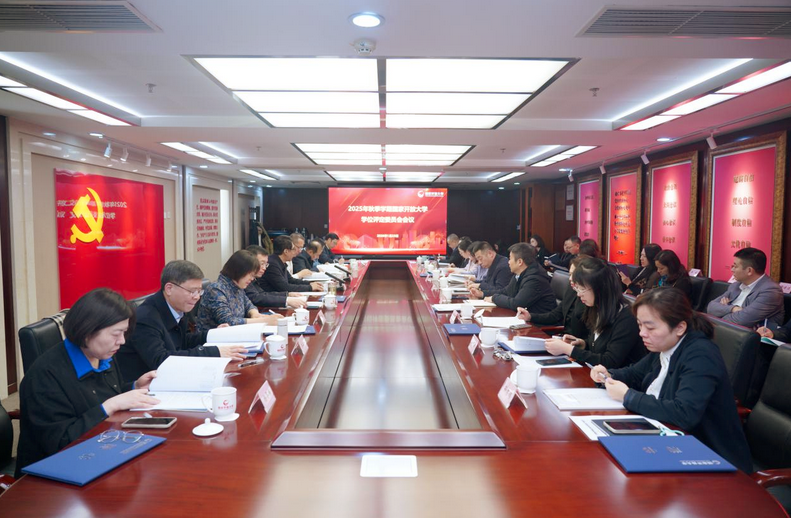 On 23 January, the Open University of China (OUC) convened the first meeting of its fifth Academic Degrees Evaluation Committee to review the 2025 autumn semester degree conferral work. Dr. WANG Qiming, President of OUC and Chairperson of the Committee, attended the meeting and delivered a speech. Seventeen committee members participated in the meeting, with heads of relevant teaching departments from the headquarters attending as observers. The meeting was chaired by Dr. LI Song, OUC’s Vice President and Vice Chairperson of the Committee.
On 23 January, the Open University of China (OUC) convened the first meeting of its fifth Academic Degrees Evaluation Committee to review the 2025 autumn semester degree conferral work. Dr. WANG Qiming, President of OUC and Chairperson of the Committee, attended the meeting and delivered a speech. Seventeen committee members participated in the meeting, with heads of relevant teaching departments from the headquarters attending as observers. The meeting was chaired by Dr. LI Song, OUC’s Vice President and Vice Chairperson of the Committee.
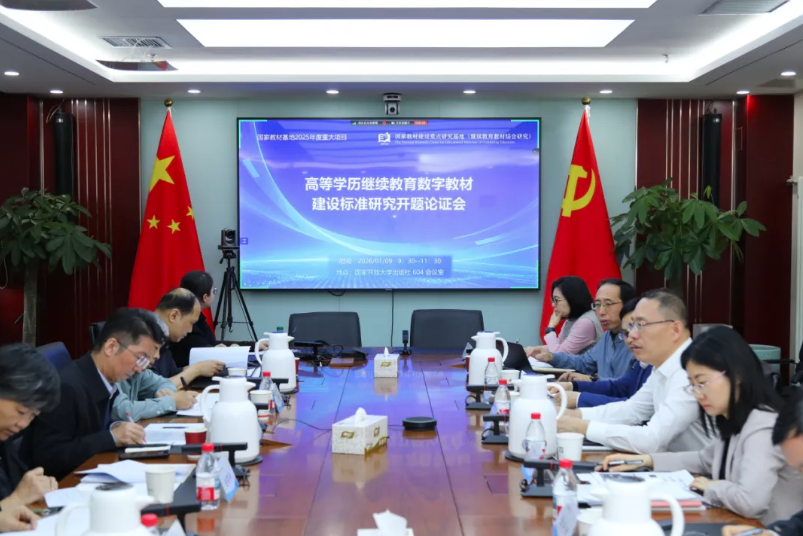 Beijing, 9 January 2026 – The project evaluation meeting for the 2025 major research project on the “Digital Textbook Standards in Higher Continuing Education” under the Key Research Base for National Textbook Construction was held at the OUC Press. The expert panel consisted of ZENG Tianshan, Deputy Director General of the Ministry of Education Curriculum and Textbook Research Institute; YU Fayou, Vice President of the Chinese Academy of Educational Sciences; LIU Yingli, Director of the Standardisation Research Institute at the China Academy of Press and Publication; LIU Yiguo, Director of the Teaching Materials Division at the Ministry of Education Vocational Education Development Centre; LI Qing, Professor at Beijing University of Posts and Telecommunications; and XU Yuan, Researcher at the Vocational Skills Appraisal Centre of the Ministry of Human Resources and Social Security.
Beijing, 9 January 2026 – The project evaluation meeting for the 2025 major research project on the “Digital Textbook Standards in Higher Continuing Education” under the Key Research Base for National Textbook Construction was held at the OUC Press. The expert panel consisted of ZENG Tianshan, Deputy Director General of the Ministry of Education Curriculum and Textbook Research Institute; YU Fayou, Vice President of the Chinese Academy of Educational Sciences; LIU Yingli, Director of the Standardisation Research Institute at the China Academy of Press and Publication; LIU Yiguo, Director of the Teaching Materials Division at the Ministry of Education Vocational Education Development Centre; LI Qing, Professor at Beijing University of Posts and Telecommunications; and XU Yuan, Researcher at the Vocational Skills Appraisal Centre of the Ministry of Human Resources and Social Security.
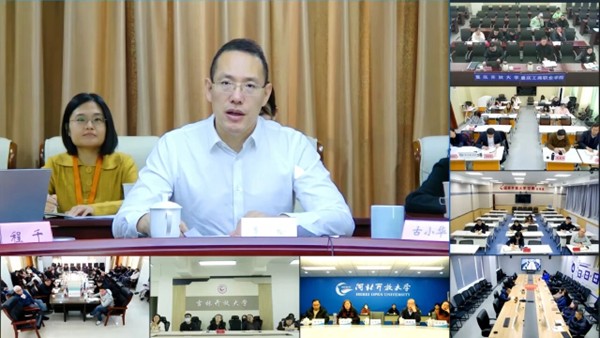 On 26 December, the Open University of China (OUC) held a meeting to deploy the final exam work for the 2025 autumn semester. OUC Vice President LI Song attended the event, which was chaired by GU Xiaohua, Director of the Academic Affairs Department.
On 26 December, the Open University of China (OUC) held a meeting to deploy the final exam work for the 2025 autumn semester. OUC Vice President LI Song attended the event, which was chaired by GU Xiaohua, Director of the Academic Affairs Department.
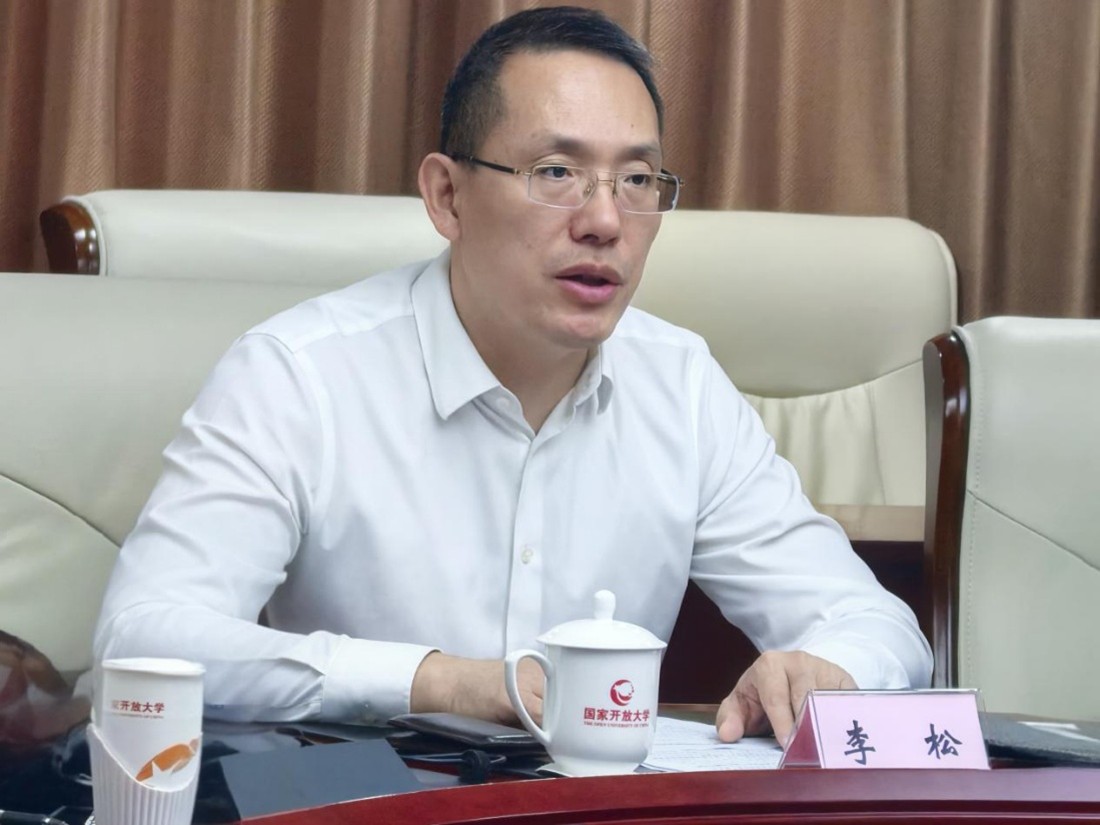 On 26 December, the Open University of China (OUC) held a meeting to deploy the degree thesis assessment work for the 2025 autumn semester. The meeting aimed to review past experiences and issues in degree work, deploy strategies for the current semester, unify assessment standards, reach consensus, and enhance thesis quality. OUC Vice President LI Song attended the event, which was chaired by GU Xiaohua, Director of the Academic Affairs Department.
On 26 December, the Open University of China (OUC) held a meeting to deploy the degree thesis assessment work for the 2025 autumn semester. The meeting aimed to review past experiences and issues in degree work, deploy strategies for the current semester, unify assessment standards, reach consensus, and enhance thesis quality. OUC Vice President LI Song attended the event, which was chaired by GU Xiaohua, Director of the Academic Affairs Department.
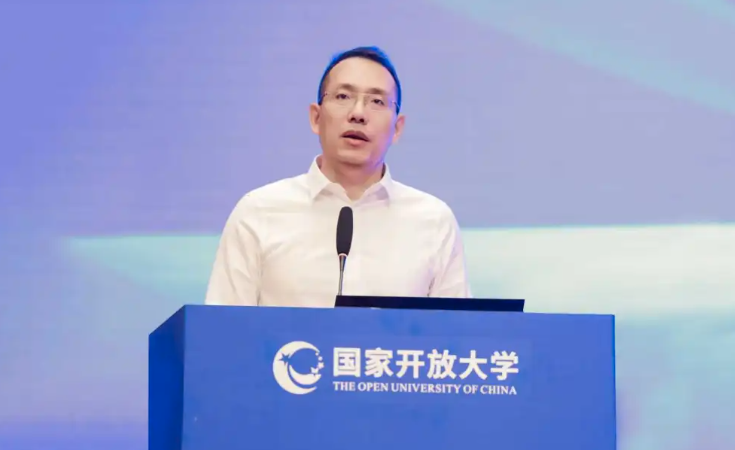 Chongqing, 23 December 2025 — The Open University of China (OUC) convened a national meeting in Chongqing to discuss and deploy its quality work. LI Song, Vice President of OUC, XU Lu, Deputy Director of the Continuing Education Division of the Department of Vocational and Adult Education, Ministry of Education, and ZHANG Yong, Deputy Director of the Education Quality Assessment Centre attended the meeting, together with more than 150 delegates including university leaders responsible for quality work from 45 branches (including the School of Xizang), heads of relevant departments, representatives from teaching units, and relevant staff from the headquarters’ Department of Quality Monitoring and Control. The meeting was chaired by JIN Yan, head of the Department of Quality Monitoring and Control of OUC.
Chongqing, 23 December 2025 — The Open University of China (OUC) convened a national meeting in Chongqing to discuss and deploy its quality work. LI Song, Vice President of OUC, XU Lu, Deputy Director of the Continuing Education Division of the Department of Vocational and Adult Education, Ministry of Education, and ZHANG Yong, Deputy Director of the Education Quality Assessment Centre attended the meeting, together with more than 150 delegates including university leaders responsible for quality work from 45 branches (including the School of Xizang), heads of relevant departments, representatives from teaching units, and relevant staff from the headquarters’ Department of Quality Monitoring and Control. The meeting was chaired by JIN Yan, head of the Department of Quality Monitoring and Control of OUC.
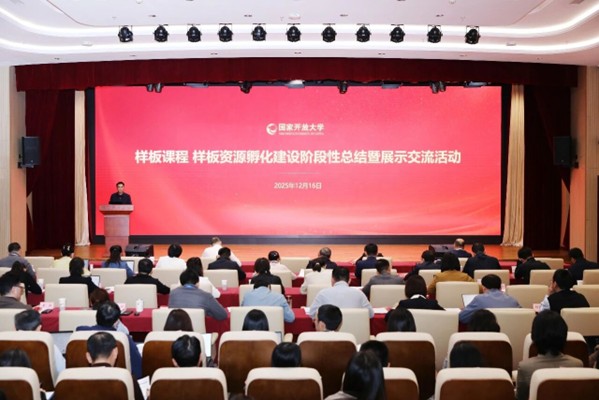 Beijing, 16 December 2025 - The Open University of China (OUC) held a summary-review exhibition and exchange activity for its model course and resource incubation projects. The initiative is designed to fully implement the "Implementation Opinions on the Comprehensive Reform of Education and Teaching in Open Universities through Digital Intelligence Empowerment and Integrated Coordination", aiming to advance the "101 Plan" of open education. The event was attended by OUC President WANG Qiming, Vice Presidents LI Song and FAN Xianrui, LIU Xuanxuan and XU Mingjun. Over 200 participants from the headquarters academic, research, and teaching management departments, as well as representatives from university affiliated enterprises, attended the meeting.
Beijing, 16 December 2025 - The Open University of China (OUC) held a summary-review exhibition and exchange activity for its model course and resource incubation projects. The initiative is designed to fully implement the "Implementation Opinions on the Comprehensive Reform of Education and Teaching in Open Universities through Digital Intelligence Empowerment and Integrated Coordination", aiming to advance the "101 Plan" of open education. The event was attended by OUC President WANG Qiming, Vice Presidents LI Song and FAN Xianrui, LIU Xuanxuan and XU Mingjun. Over 200 participants from the headquarters academic, research, and teaching management departments, as well as representatives from university affiliated enterprises, attended the meeting.
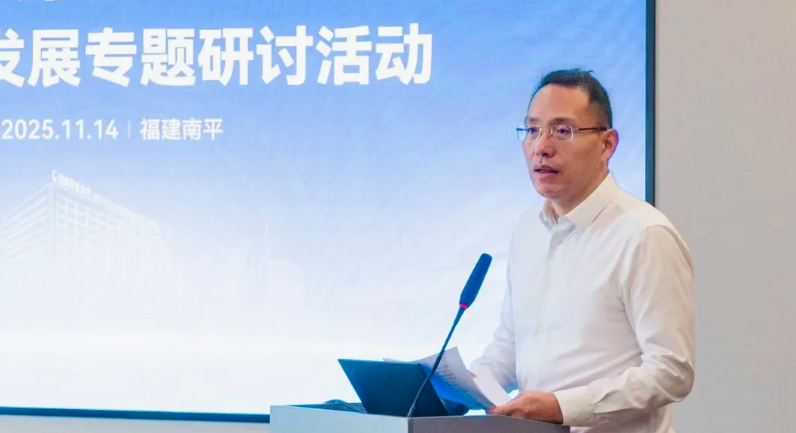 Nanping, Fujian, 13 to 15 November 2025 -To advance the execution of the "Implementation Opinions on the Comprehensive Reform of Education and Teaching in Open Universities through Digital Intelligence Empowerment and Integrated Coordination" and enhance the quality of open learning resources developed at the provincial level, the Open University of China (OUC) organised a themed seminar. The event was attended by LI Song, OUC Vice President and CPC Committee member, ZHUANG Li, Party Secretary of the Open University of Fujian, and LIN Qiu, Vice Mayor of Nanping Municipal People’s Government. The event was chaired by LI Wei, Director of OUC's Learning Resources Department.
Nanping, Fujian, 13 to 15 November 2025 -To advance the execution of the "Implementation Opinions on the Comprehensive Reform of Education and Teaching in Open Universities through Digital Intelligence Empowerment and Integrated Coordination" and enhance the quality of open learning resources developed at the provincial level, the Open University of China (OUC) organised a themed seminar. The event was attended by LI Song, OUC Vice President and CPC Committee member, ZHUANG Li, Party Secretary of the Open University of Fujian, and LIN Qiu, Vice Mayor of Nanping Municipal People’s Government. The event was chaired by LI Wei, Director of OUC's Learning Resources Department.
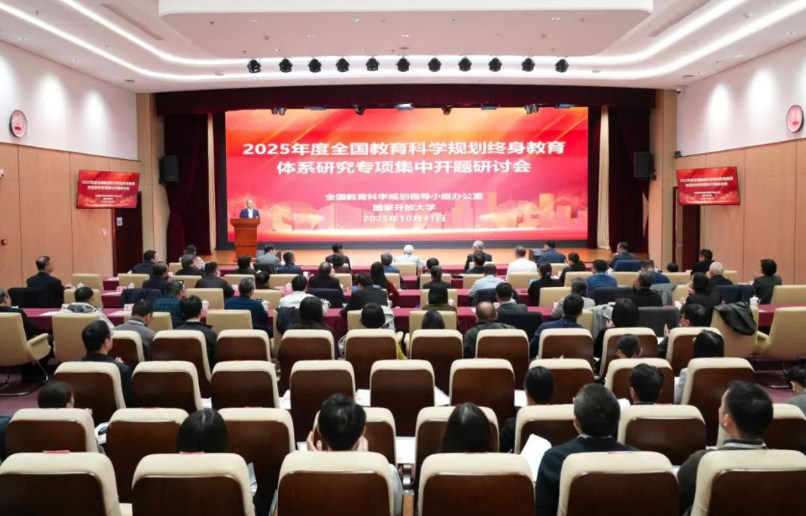 Beijing, 31 October 2025 - The Project Proposal Defence Workshop for National Education Sciences Planning Lifelong Education System Research was held at the Open University of China (OUC).
Beijing, 31 October 2025 - The Project Proposal Defence Workshop for National Education Sciences Planning Lifelong Education System Research was held at the Open University of China (OUC).
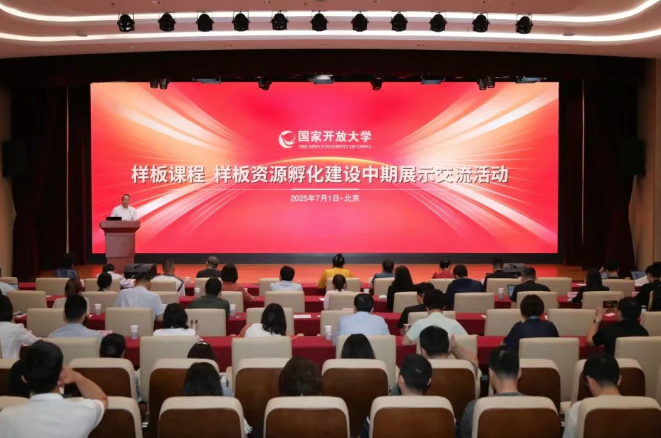 Beijing, 1 July 2025 - The Open University of China (OUC) convened a mid-term exhibition and exchange activity for its model course and resource incubation projects.
Beijing, 1 July 2025 - The Open University of China (OUC) convened a mid-term exhibition and exchange activity for its model course and resource incubation projects.